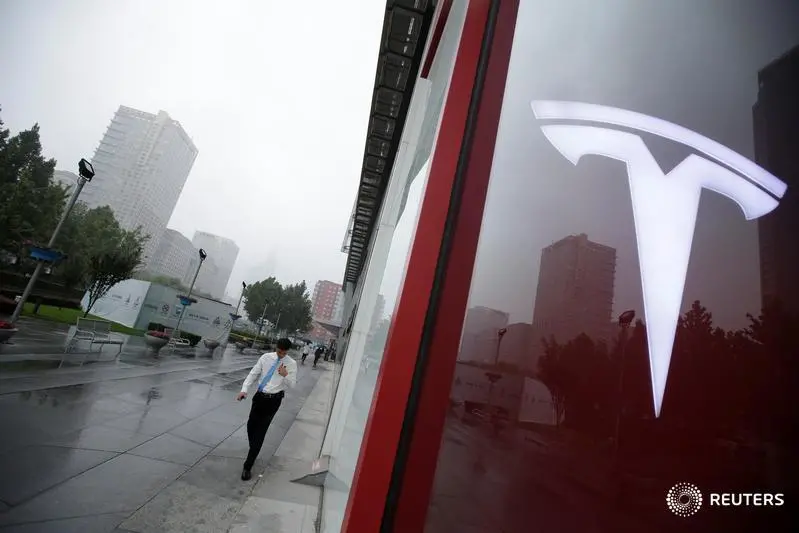PHOTO
LONDON - Saudi Arabia’s Crown Prince Mohammed bin Salman risks picking the wrong driver. The kingdom’s sovereign wealth fund already holds nearly 5 percent of Tesla and expressed interest in taking the electric-vehicle innovator private, according to boss Elon Musk. That’d be a dicey way to diversify away from oil.
At first glance, $60 billion Tesla fits the crown prince’s mandate to reduce reliance on fossil fuels. The company’s Model S was the most popular all-electric car in North America and Europe by sales last year, according to Citi. Musk has also poured money into battery-storage technology. That makes Tesla a natural hedge as and when demand falls for the Gulf state’s traditional cash cow, oil.
Musk reckons about two-thirds of investors would still want to hold shares in a private Tesla. Saudi’s sovereign wealth fund, the likely investment vehicle according to a Monday blog post by Musk, could therefore buy the rest for about $24 billion at the mooted $420 per share price.
The desert kingdom is hardly cash-strapped, but that’s 10 percent of the Public Investment Fund’s assets, according to Sovereign Wealth Fund Institute data. Few portfolio managers would fancy such concentration. The bulk of the fund’s $250 billion of resources is tied up in Saudi companies, and $65 billion is earmarked for a Blackstone infrastructure venture fund and SoftBank's mammoth tech fund.
Either way, Tesla might not be the wisest way to bet on electric cars. BMW, General Motors GM.N and Volkswagen are investing heavily and have enviable production scale and know-how. Tesla’s sales have dipped as much as 30 percent in European countries since rival models launched, Bloomberg reported, citing IHS and government data which Tesla disputes.
Crucially, the buyout price means the crown prince risks paying away much of his potential upside. At $420 per share, loss-making Tesla’s enterprise value of $81 billion including debt is four times 2018 revenue, using Thomson Reuters I/B/E/S. Slower-growing but profitable carmakers are generally valued at around one times revenue. Battery specialist and renewable-energy groups Siemens Gamesa and Vestas Wind are valued at roughly the same level, according to Eikon.
While a shiny new Tesla is cooler than a row of turbines, the crown prince has cheaper ways to play the energy transition.
On Twitter https://twitter.com/liamwardproud
CONTEXT NEWS
- Elon Musk on Aug. 13 published a blog on Tesla’s website offering further details about his discussions to take the electric-car maker private. He revealed that since the start of last year he has had several discussions about the idea with Saudi Arabia’s sovereign wealth fund.
- After the most recent meeting on July 31, Musk wrote, the managing director of the fund “strongly expressed his support for funding a going private transaction for Tesla at this time. I understood from him that no other decision makers were needed and that they were eager to proceed.”
- Musk said that meeting was what gave him the confidence to say “funding secured” in a tweet on Aug. 7.
- Musk also wrote in the blog post that he has been talking to Tesla’s largest shareholders about a deal and estimates that two-thirds of shareholders are willing to keep their investment if the company goes private.
- Saudi Arabia, which has built up a nearly 5 percent stake in Tesla, is considering taking a larger stake, the Wall Street Journal reported on Aug. 13.
- Tesla shares closed at $356.41 on Aug. 13, or 15 percent below Musk’s mooted buyout price of $420.
- For previous columns by the author, Reuters customers can click on PROUD/
- SIGN UP FOR BREAKINGVIEWS EMAIL ALERTS http://bit.ly/BVsubscribe
(The author is a Reuters Breakingviews columnist. The opinions expressed are his own.)
(Editing by George Hay and Martin Langfield) ((liam.proud@thomsonreuters.com; Reuters Messaging: liam.ward-proud.thomsonreuters.com@reuters.net))





















